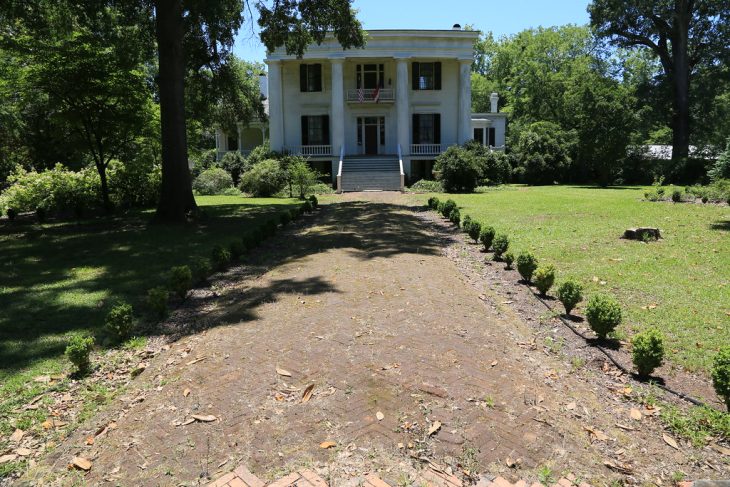
Word of the Day: Subterfuge
Today’s word of the day, courtesy of Dictionary.com, is subterfuge, a noun which means “an artifice or expedient used to evade a rule, escape a consequence, hide something, etc.” (https://www.dictionary.com/e/word-of-the-day/). It entered the language in the “1570s, from French subterfuge (14c.) or directly from Medieval Latin subterfugium ‘an evasion,’ from Latin subterfugere ‘to evade, escape, flee by stealth,’ from subter ‘beneath, below;’ in compounds ‘secretly’ (from PIE *sup-ter-, comparative form of *(s)up-; see sub-) + fugere ‘flee’ (see fugitive (adj.)).
“In English subter- sometimes is a word-forming element, ‘under, below, less than,’ in opposition to super-. Compare subterfluous ‘running under water’ (1650s); subterconscious (adj.), 1856; subternatural “subnormal” (1870); subterhuman (1833)” (https://www.etymonline.com/search?q=subterfuge).
I did not know that subter– was a regular word-forming element in English, other than in subterfuge. So I went to the OED app on my phone to look it up. The only other words I found that began with subter were subterranean and subterminal. The first is made up of the prefix sub– and the root terra. The second word, which means “occurring near but not at the end,” is made up of sub– and terminus. So subterfuge is the only current word that uses this comparative form of sub. A comparative form is usually associated with the ideas of more or less, “more under” or “less under,” in this case.
You may have noticed that the etymology says that subter is from a comparative form of “(s)up-“ (ibid.). The PIE prefix is actually “*upo.” Here is the entry: “Proto-Indo-European root meaning ‘under,’ also ‘up from under,’ hence ‘over.’
“It forms all or part of: above; assume; Aufklarung; eave; eavesdropper; hyphen; hypo-; hypochondria; hypocrisy; hypotenuse; hypothalamus; hypothesis; hypsi-; hypso-; opal; open; oft; often; resuscitate; somber; souffle; source; soutane; souvenir; sub-; subject; sublime; subpoena; substance; subterfuge; subtle; suburb; succeed; succinct; succor; succubus; succumb; sudden; suffer; sufficient; suffix; suffrage; suggestion; summon; supine; supple; supply; support; suppose; surge; suspect; suspend; sustain; up; up-; Upanishad; uproar; valet; varlet; vassal.
“It is the hypothetical source of/evidence for its existence is provided by: Sanskrit upa ‘near, under, up to, on,’ Greek hypo ‘under,’ Latin sub ‘under, below,’ Gothic iup, Old Norse, Old English upp ‘up, upward,’ Hittite up-zi ‘rises’” (ibid.). For instance, hypothesis originally meant an assumption that was the foundation of further study, an underlying thesis.
I learned about Robert Toombs when I lived, very briefly, in Washington, GA, working for the Royal Manufacturing Company. I learned a little more about him when I was in grad school at UGA. He was not, to me, a hero, though some people I knew thought he was.
Toombs’s fame at UGA had to do with his being a ne’er-do-well as well as his natural talent. Toombs was admitted to Franklin College when he was 14, but he was expelled for “unbecoming conduct in a card-playing incident” (https://en.wikipedia.org/wiki/Robert_Toombs). The story goes that “Toombs returned on the next commencement day after he was expelled and spoke so eloquently under the tree that the entire audience left the chapel to hear him. Later, it was said, that the tree was struck by lightning on the day Toombs died and never recovered. The tree finally collapsed in 1908 and the remains were cut into mementos that have since been handed down by alumni” (https://www.georgiahistory.com/ghmi_marker_updated/robert-toombs-oak/). I do not know whether that story is true, but the stump of the Toombs oak tree stood outside the north campus chapel and the Hall of the Demosthenian Literary Society when I was a student there. Like Toombs, I was a Demosthenian.
Later, Toombs became a Confederate, even the Vice President of the CSA during the Civil War. As the South was losing, the Union soldiers were tasked with apprehending the leading confederate. They arrested Jefferson Davis. They sent a group of soldiers to Robert Toombs’s home in Washington, one of those beautiful ante-bellum homes with the pillars in front. As a side note, it survived the war and probably still stands because Sherman didn’t bother with Washington, GA.
When the soldiers arrived at Toombs’s home, he was upstairs. His wife invited them in and, being a good Southern hostess, she asked them if they would like tea, an offer which they accepted. While she entertained her husband’s would-be captors, he jumped from the read balcony onto his horse and fled to New Orleans and finally to France. He returned to Georgia two years later. He never asked for nor received a pardon from the Union, but he did re-establish his law practice and became influential in Georgia politics.
I don’t have much respect for Robert Tooms, but his wife, Martha Juliann (“Julia”) nee DuBose (1813-1883) pulled off a marvelous piece of subterfuge to save her husband, no matter how bad a scoundrel he was. She also returned to Georgia to care for her grandchildren after her last child died in 1866.
Today’s image is of Robert Toombs’s home in Washington, Georgia, a photo taken and posted by Bruce Tuten (https://www.flickr.com/photos/savannahgrandfather/9216003260).